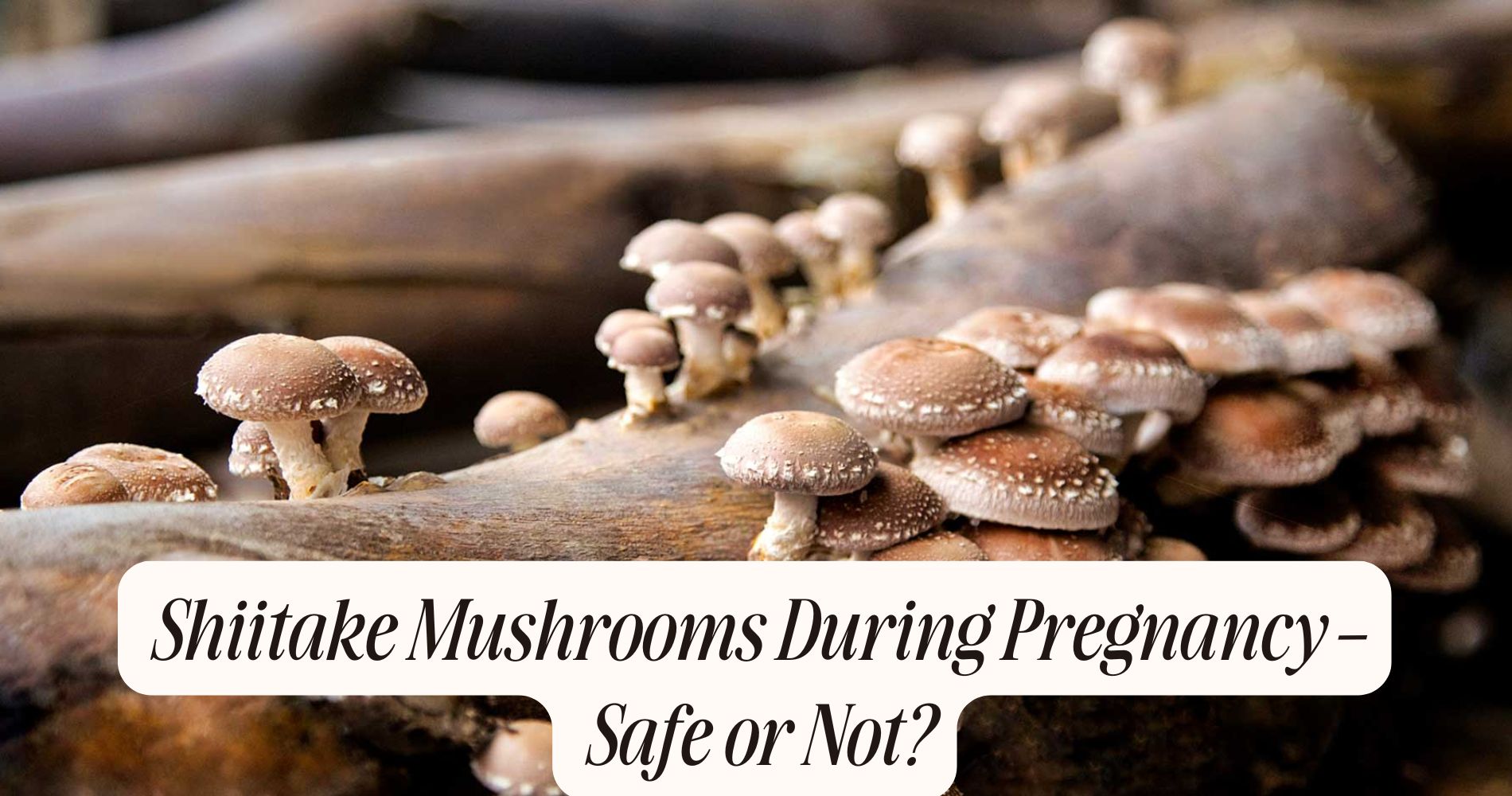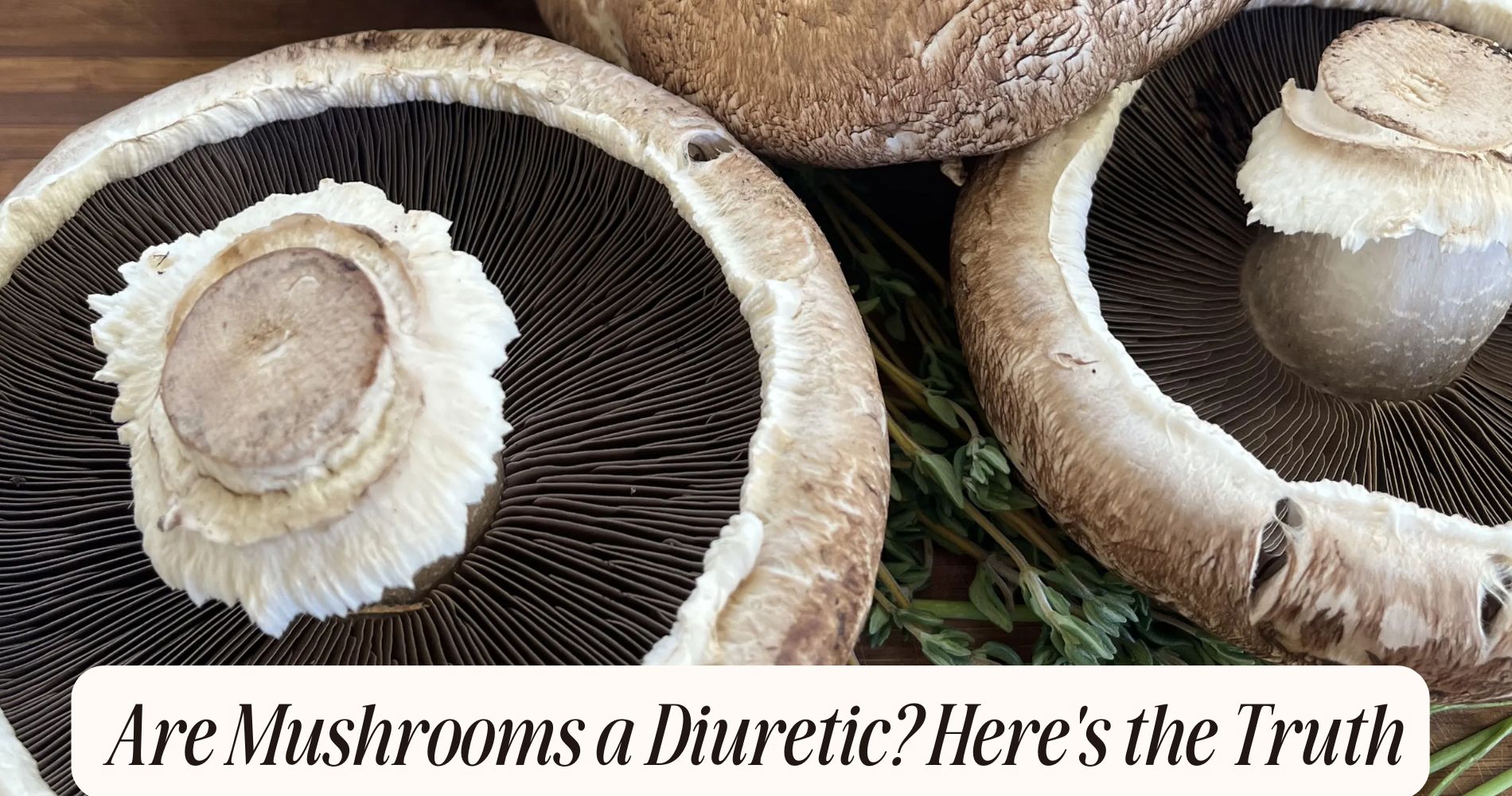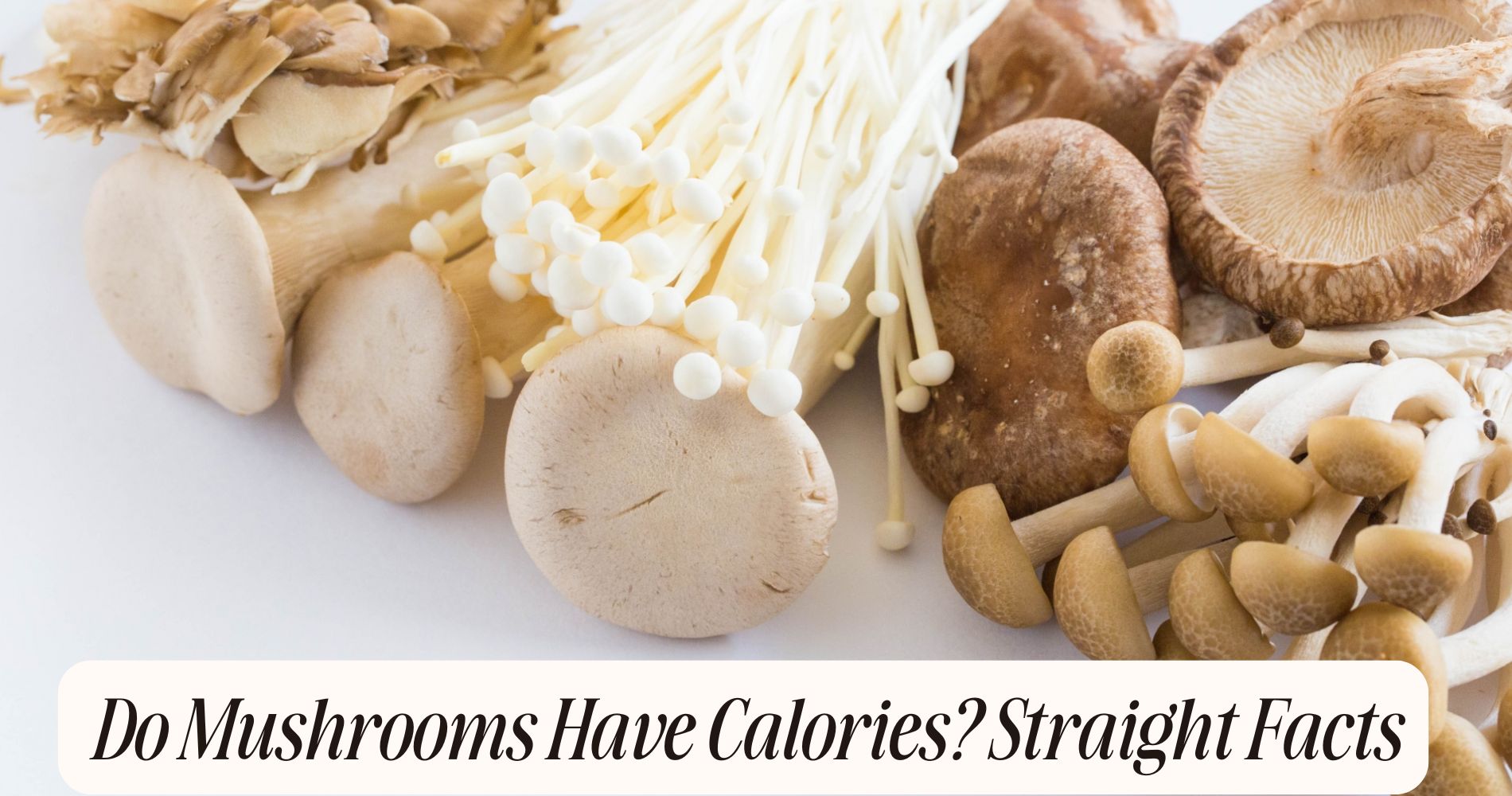
Shiitake Mushrooms During Pregnancy – Safe or Not?
Shiitake mushrooms are safe to eat during pregnancy when you cook them thoroughly and choose fresh, well-stored varieties. They provide valuable nutrients like B vitamins, fiber, and minerals that boost energy and support your immune system. However, eating them raw can increase your risk of foodborne illness or allergic reactions. Stick to cooked mushrooms, wash them well, and consult your doctor if you have known allergies. Want practical tips on preparation and maximizing health benefits? Keep going.
Nutritional Value of Shiitake Mushrooms
Although shiitake mushrooms are often praised for their rich flavor, their nutritional profile offers significant health benefits as well. When you add shiitake mushrooms to your meals, you’re getting a source of B vitamins, copper, selenium, and fiber—all essential for overall wellness.
Cooking methods matter; sautéing or steaming helps conserve their nutrients better than deep-frying or overcooking.

To maximize freshness and nutrient content, follow storage tips like keeping mushrooms in a paper bag in the refrigerator. This prevents moisture buildup and extends their shelf life.
Fresh shiitake mushrooms are low in calories and fat, making them a valuable addition to balanced diets. By preparing them properly and storing them well, you can ensure you’re getting the most nutrition from every serving.
Potential Health Benefits for Expecting Mothers
When you include shiitake mushrooms in your pregnancy diet, you may support both your own health and your baby’s development. Shiitake mushrooms are rich in B vitamins, copper, and selenium, all of which help maintain energy levels and immune function during pregnancy.
You’ll also benefit from their dietary fiber, which can ease common digestive issues like constipation. Some research highlights that fermentation benefits—such as improved digestibility and nutrient absorption—are enhanced when shiitake mushrooms are consumed in fermented dishes, like miso soup or pickled preparations.
Their culinary uses are versatile, allowing you to add them to stir-fries, soups, or rice dishes for extra flavor and nutrition. By incorporating shiitake mushrooms thoughtfully, you can enjoy both their taste and evidence-backed health benefits.
Risks Associated With Consuming Shiitake Mushrooms
While shiitake mushrooms can offer valuable nutrients during pregnancy, it’s important to be aware of potential risks before adding them to your diet. One major concern is food poisoning, as mushrooms can harbor harmful bacteria if not handled properly.
Expecting mothers are more vulnerable to infections, so consuming contaminated mushrooms may lead to complications for both you and your baby. Additionally, fungal contamination is possible during the cultivation or storage of shiitake mushrooms, introducing toxins or allergens that could cause adverse reactions.

Some people experience allergic symptoms, such as skin rashes or digestive discomfort, after eating shiitake mushrooms. By understanding these risks, you can make informed decisions about what you eat and help ensure a safer pregnancy.
Always prioritize food safety and quality.
Raw vs. Cooked: Preparation Matters
Understanding the potential risks of eating shiitake mushrooms highlights the importance of how you prepare them. Eating raw shiitake mushrooms can pose health risks, including the potential for foodborne illness and a skin reaction known as shiitake dermatitis.
Cooking is essential—it destroys harmful microorganisms that may linger from mushroom cultivation and breaks down compounds that could cause adverse reactions. By thoroughly cooking shiitake mushrooms, you considerably lower these risks.
Plus, cooking enhances their flavor and texture, making them safer and tastier for various culinary pairings, from stir-fries to soups.
While raw preparations might seem tempting, especially in salads, it’s best to avoid them during pregnancy. Proper preparation ensures you gain the nutritional benefits while minimizing any potential hazards associated with shiitake consumption.
How to Safely Include Shiitake Mushrooms in Your Diet
If you’d like to enjoy shiitake mushrooms during pregnancy, taking a few simple precautions can help you do so safely. Always choose fresh mushrooms that are firm and free from mold. Thoroughly wash them under running water to remove dirt and potential contaminants.
Use safe cooking methods—such as sautéing, boiling, or baking—since properly cooking shiitake mushrooms reduces the risk of harmful bacteria or parasites that might be present in raw varieties. Avoid eating shiitake mushrooms raw.

If fresh shiitake isn’t available, you can use substitute options like well-cooked button or cremini mushrooms, which also provide nutrients and similar texture. Moderation is key; include mushrooms as part of a varied diet rather than the main ingredient in every meal.
This approach supports both safety and nutritional balance.
Allergic Reactions and Sensitivities
Although shiitake mushrooms are generally well-tolerated, some people may experience allergic reactions or sensitivities when consuming them. If you have a history of pollen allergies, you might be more prone to mushroom sensitivities, including reactions to shiitake mushrooms.
Symptoms can range from mild, such as skin rashes or itching, to more severe responses like swelling or difficulty breathing.
Rarely, shiitake mushrooms may cause a unique skin reaction called "shiitake dermatitis," which appears as a rash after eating raw or undercooked mushrooms.
It's important to recognize that true mushroom allergies are uncommon but possible. Always pay attention to your body's response, especially if you're trying shiitake mushrooms for the first time or have known sensitivities to other fungi or environmental allergens.
Expert Recommendations for Pregnant Women
When considering shiitake mushrooms during pregnancy, health experts generally agree that they're safe to eat as long as you prepare them properly and consume them in moderation.
You should always cook shiitake mushrooms thoroughly to reduce the risk of fungal contamination, which can pose health concerns during pregnancy. Experts recommend buying fresh mushrooms from reputable sources, as this lowers the risk of exposure to harmful bacteria or toxins.

It's wise to wash mushrooms well to minimize pesticide residues, even if they're labeled organic. Try to avoid wild or foraged varieties, as these have a higher risk of contamination.
If you have allergies or notice any unusual symptoms after eating shiitake mushrooms, stop consumption and consult your healthcare provider. Always prioritize food safety for your well-being and your baby's health.
Easy Wellness for Moms on the Go
If you’re seeking a simple way to support your well-being during pregnancy, SUPER MUSHROOM GUMMIES by Well Gummies offer a convenient, chewable option. Packed with 10 functional mushrooms, these vegan gummies are designed to promote natural energy, calm focus, and immune balance—without caffeine or synthetic additives. With a wild berry taste you’ll actually look forward to, they’re a smart supplement that fits easily into your prenatal routine.
Frequently Asked Questions
Can Shiitake Mushrooms Interact With Common Prenatal Medications?
You may wonder about medication interactions between shiitake mushrooms and prenatal medications. Current evidence shows low risk, but always discuss supplement safety with your healthcare provider, since individual reactions and medication interactions can vary during pregnancy.
Are Shiitake Mushroom Supplements Safe During Pregnancy?
If you're considering shiitake mushroom supplements for immune support during pregnancy, evidence is limited. You should consult your doctor, as supplements aren't always regulated and could interact with dietary restrictions or prenatal vitamins, affecting your safety.
Do Dried Shiitake Mushrooms Differ in Safety From Fresh Ones?
When you compare dried vs fresh shiitake mushrooms, both are generally safe if cooked well. Storage differences matter—dried mushrooms last longer but may accumulate contaminants if stored improperly, so always guarantee proper storage and preparation before eating.
Is Shiitake Mushroom Tea Safe for Pregnant Women?
If you drink shiitake mushroom tea while pregnant, you should know there’s limited research on its safety. You could face allergy risks or rare mushroom poisoning. Always consult your healthcare provider before consuming, to guarantee balanced, evidence-based decisions.
Can Shiitake Mushrooms Affect the Taste of Breast Milk Later On?
You might notice that shiitake mushrooms could slightly alter breast milk flavor, as various foods do. While there's no strong evidence, exposing your baby to different flavors may positively influence infant taste development and future food acceptance.
Conclusion
If you’re pregnant, you can enjoy shiitake mushrooms as part of a balanced diet, as long as you cook them thoroughly. They offer valuable nutrients and potential health benefits, but eating them raw increases the risk of foodborne illness. Pay attention to any allergic reactions and consult your healthcare provider if you have concerns. By making informed choices and following expert recommendations, you’ll safely include shiitake mushrooms in your pregnancy diet and support your well-being.




